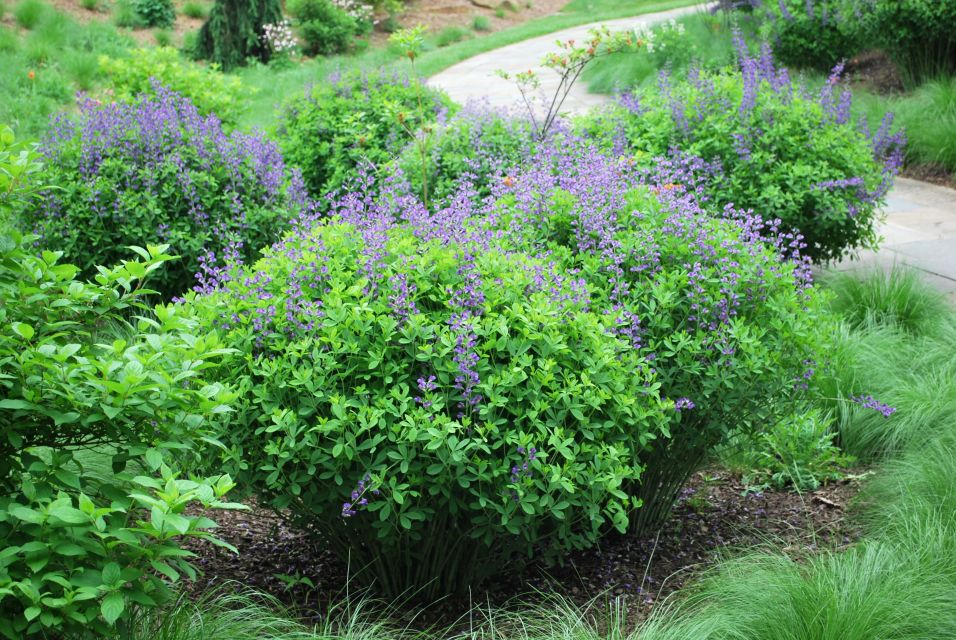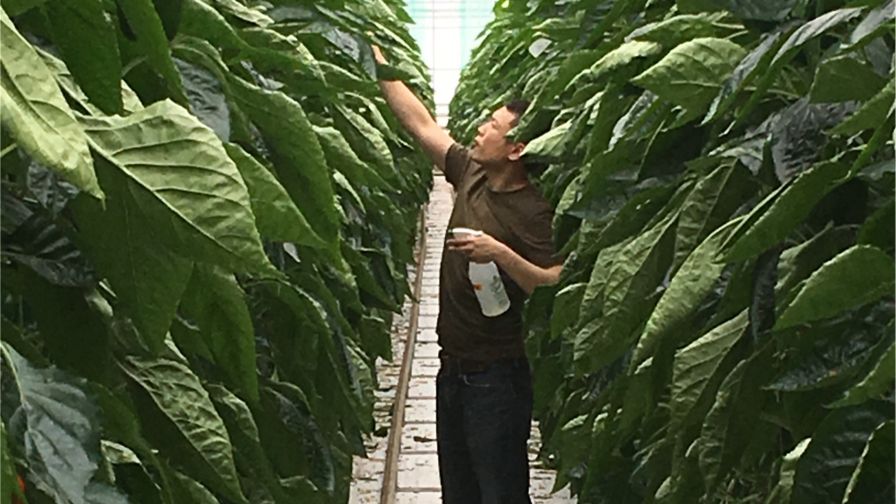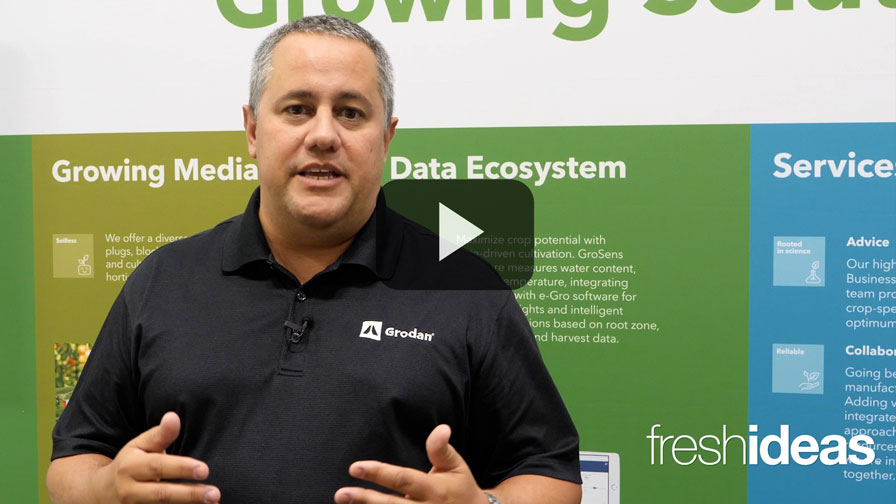How Speedling Embraces and Succeeds With Sustainability
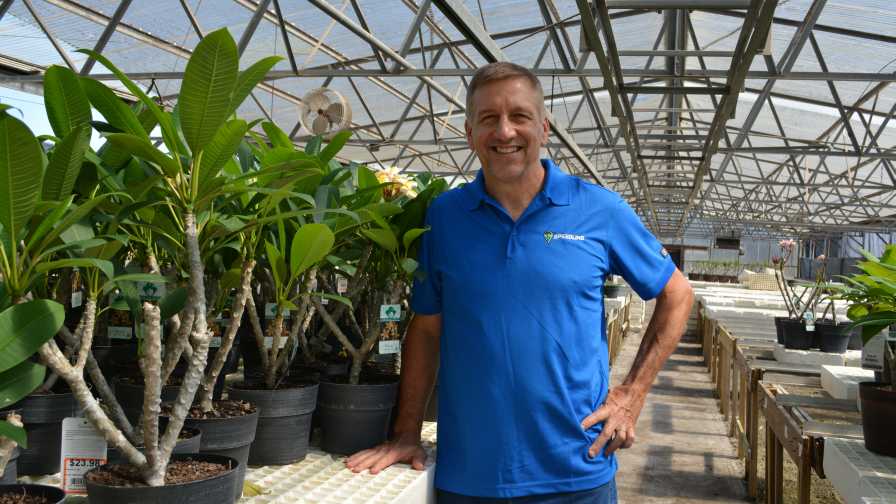
Speedling President and CEO Greg Davis is a big believer in scalable sustainability, which dictates that you measure what you’re doing so you can continually take steps to improve. Photos: Frank Giles
If there is one principle that drives Speedling, Inc., it is “scalable sustainability.”
According to Speedling President and CEO Greg Davis, the true value of being sustainable is more than just enacting individual practices such as reduced chemical use, water management, or labor efficiency.
“Scalable sustainability dictates that we measure what we’re doing so we can continually take steps to improve,” Davis says. “You have to have metrics and recordkeeping so you can identify where you might need to make changes that will help improve your products and services.”
Speedling, a Florida-headquartered producer of ornamentals and vegetable transplant plugs celebrating 50 years of operation in 2019, has eight farms spread out over multiple locations in Florida, Georgia, Texas, and California. The goal at each, Davis says, is to provide the most consistent product possible to its wide range of customers.
“We exist at the whim of our customers, and to serve them,” Davis says. “If we’re going to survive, that’s what we’ll be doing 50 years from now.”
This is why sustainability has been at the heart of how Speedling operates since its beginning. Recently, the company began taking steps toward official certification in sustainable practices. The good news is, this process didn’t force the company to make major production changes. For the most part, it simply validated that Speedling has built a legacy on doing things the right way.
Two Sides to the Sustainability Coin
Speedling’s certification will be through More Profitable Sustainability (MPS), a Netherlands-based company that has certified several of the nation’s largest greenhouse operations. However, as Davis notes, Speedling has operated as if it’s been certified for a while.
“The long-term profitability standpoint of the MPS sustainability certification is what appealed to us,” Davis says. “One of the frustrating things about some aspects of the environmental movement is it ignores the element of profit. You can’t be financially sustainable if you are not able to cover your bills.”
The MPS program, Davis says, is one of the few certifications that recognizes the importance of the financial side of sustainability. But it’s also about more than just the bottom line.
“A lot of what is measured is things we are already doing,” Davis says. “Whether it’s using fewer caustic chemicals or using less water, these were things we wanted to do anyway.”
Mark Worley, East Coast Division Manager for Speedling, also points out that the MPS certification program has brought new ideas and concepts that the company had not yet considered but can easily add.
“The benefits have been tremendous when it comes to making our business and our customers more successful,” Worley says. “The more you can study, measure, and act, the more sustainable you can be for your company and the people who are part of it.”
A Recipe for Success
In the greenhouse, one thing Speedling has done more of is operate by recipes, particularly on the vegetable side of the business.
“We’re using the BackPocketGrower tool from the University of Florida to help us dial in on each plant,” Worley says. “The recipe is controlled and dictated by the growers and then fed into our system, which monitors every step in the production process.”
This summer, Speedling will also start using a new Picas operating system, which will allow the company to enhance its ability to structure and control each step of production so there are no variables.
“Our customers want to eliminate variables and start with a consistent transplant, and that’s what our system and recipes are set up to do,” Davis says. “The challenge is in growing tens of thousands of individual crops every day, all over the country, and still providing the customer with a consistent crop.”
The new Picas system will allow Speedling to modify recipes and timing based on each facility and time of year. Most importantly, because it’s all recorded, Speedling’s growers won’t have to make as many judgment calls in daily operations.
“Our growers’ ability to make critical decisions is enhanced by not having to make a million others just to get to that point,” Davis says. “We want a recipe for those million others, so when they have to do something different, they have the time and capacity to think about it.”
Davis compares it to making a cake.
“Most of the recipe is the same every time, but you may add extra ingredients sometimes to make it unique,” he says. “If we can find those things, we want to add them into our recipe, or at least have a largely consistent recipe.”
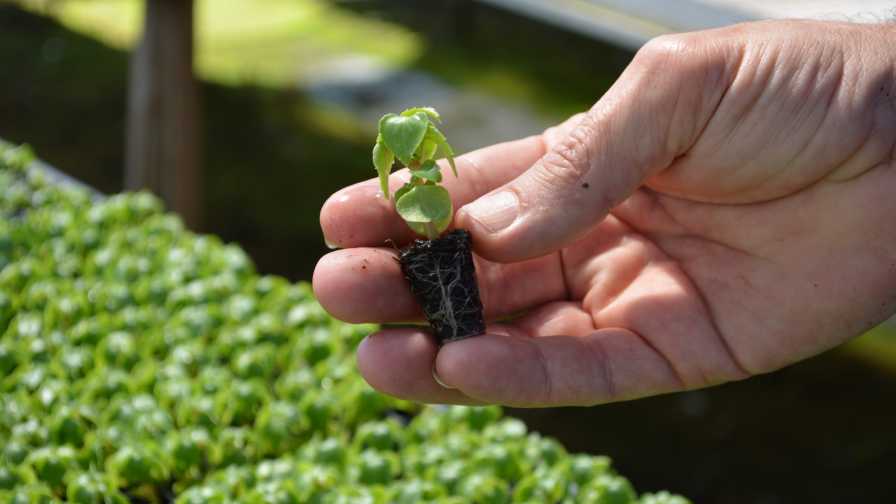
Recently, Speedling has focused more on operating by plant recipes, eliminating a lot of smaller decisions for growers and allowing them to focus on more important factors.
Labor: The Elephant in the Room
As with just about every other grower, labor looms as a major influencer for Speedling’s long-term success, and Davis says that any way Speedling’s sustainability efforts can help improve labor efficiency is critical.
“Labor is just like water or any other input,” Davis says. “We have to find a way to use less people and create more value for the ones we do use.”
One of the goals at Speedling is to give its workers the tools they need to make their jobs more valuable than ever before. However, as labor cost and availability has become more of an issue, it has forced growers to make strategic changes before they have the technology and methodology in place.
“It’s put a squeeze on us, and we have to tell our teams to work with half as many people and produce twice as much,” says Davis, who also notes that many of Speedling’s customers are in the same position, which means the costs cannot be passed on to them.
“Our goal is to be able to improve our own efficiency and allow our customers to do the same,” Davis says.
Lessons for the Future
Moving forward, Davis says Speedling’s mix of ornamentals and vegetables does create challenges, but the opportunities outweigh them.
“We’re able to take things that we learn in ornamentals and apply them to vegetables, and vice versa,” Davis says.
The cross-coast facilities means there are some differences, but as Speedling has recognized those differences, it has also found a lot of commonality.
“We try to take any lesson learned, whether it was a win or a loss, in any of our facilities, and by any of our teams, and share with the whole company,” Davis says. “If we make a mistake, our whole team needs to know so they don’t make the same mistake. Conversely, we want to share the successes so our team can take advantage of them. That will have to continue if we want to survive in the next 50 years.”
Benefits of Certification
Speedling is working with MPS to complete its initial year of registration and in June 2019 will receive its initial audit for MPS-ABC certification.
According to Arthij van der Veer, MPS General International Coordinator North & Central America, it was clear from the start that Speedling already had a good tracking and tracing system in place, which has enabled it to smoothly comply with the reporting requirements.
“During regular visits in 2018 and 2019, we offered tips and tricks on implementation and reviewed the preliminary qualification reports and points of improvement on the different themes,” says van der Veer, who points out there are benefits on both the internal and external level.
“Internally, the benchmark system and reporting will give them more transparency and information on the efforts they are making in the area of sustainability,” van der Veer says. “With the qualification reports for MPS-ABC, they can also see which areas they can improve and lower the use of fertilizers, water, or crop protection agents.”
On an external level, the MPS-ABC certification shows Speedling’s customers, for both vegetable plugs and ornamentals, that the company is a front-runner on sustainability and sustainable practices.
It also helps customers on the ornamental side comply with any requirements on the use of specific active ingredients, van der Veer says.
Finally, it’s important to note that Speedling is the first grower to have both ornamentals and vegetable plugs receive MPS-ABC certification.
According to van der Veer, “Cooperating to make Speedling’s efforts and dedication to sustainability more transparent is something we look forward to doing for the next decade.”
New Crop, New Opportunity
In May, Speedling began producing hemp, a crop that has very little established recipes or crop inputs.
“Years ago, that would have been a huge challenge,” says Greg Davis, President and CEO of Speedling. “Today, since we are using low-impact chemicals and focusing on preventative, rather than curative, pest control, it won’t change much of how we grow.”
Moving forward, Davis says Speedling’s current sustainability focus will allow it to absorb a new crop that has a lot of limitations simply by omitting allowable inputs.
“When we focused on fewer inputs and less water a few years ago, there weren’t many ways to measure that and reap the financial benefits for ourselves and our customers,” Davis says. “More and more, there’s an enhanced recognition for that.”




